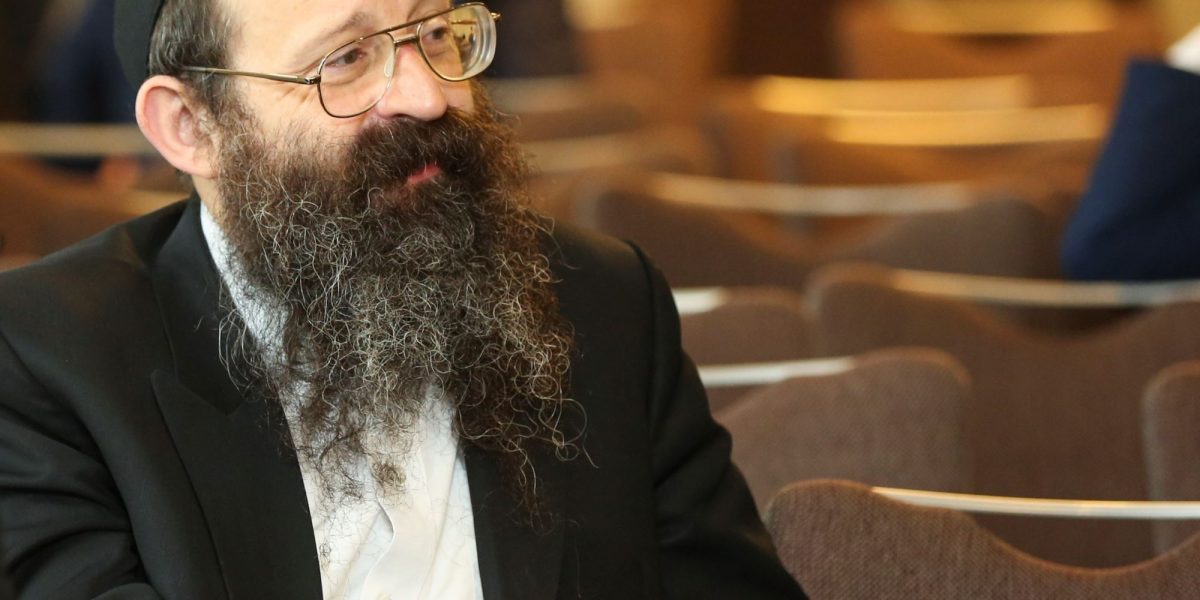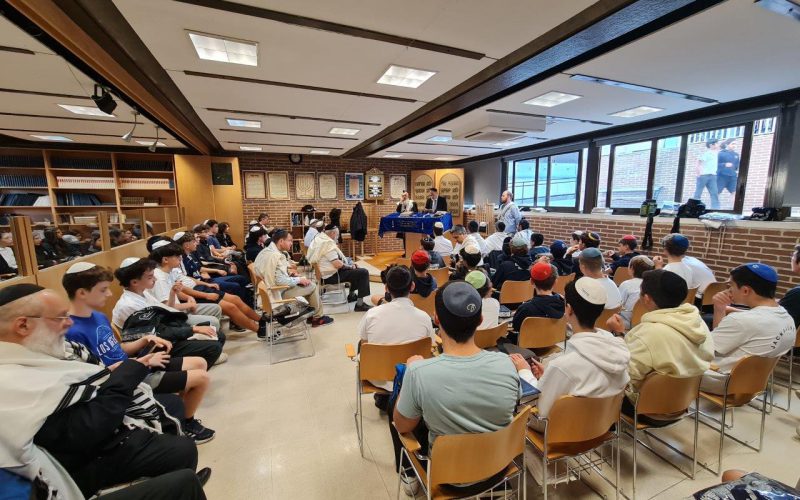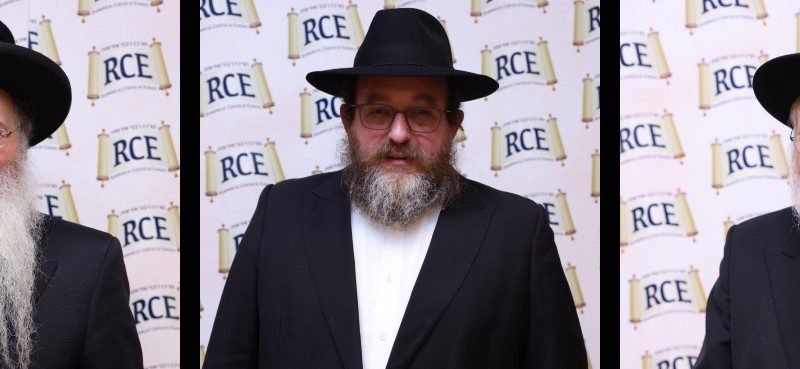Halachic Questions on Pesach
Hilchos Pesach By Dayan Levi Itschak Raskin Shlit”a, Dayan and Posek for the Lubavitch Community in London and Rabbinical Council member

1.
A) What are the Halachic requirements for Chometz efficiently?
B) Can a local Rabbi sell the Chometz or is it preferable to be sold through a notable Beis Din?
C) Does the location of the Chometz have to be specified?
D) What is the Din of Chometz sold through the internet?
Chazal said: (Kedushin 6;1 and more)’You should not make any business deals with anyone that has no knowledge in Kedushin and Gittin’. Therefore, if someone is not totally clear about the Halachos of selling, it is definitely preferable to have a skilled person perform the selling. Even so, in ‘Netivim Bisadeh Hashlichut’ volume 1, I created a step after step guideline, how to sell Chametz. If the person is capable, then I advise to perform the selling himself. It does require time and effort but it saves a lot of last minute stress.
Location of Chametz: When people come to me to sell the Chometz, I inquire where the location is even though it says ‘Any place at all’. The reason is because the location has its own Halachic requirements such as 10 Tefachim space and more. Even so I still add the word ‘Any place at all’. This way if the seller forgot about another place where he hid the Chometz or forgot about not hiding Chometz atb all somewhere else, it will be included in the sale.
Selling Chometz on the Internet: The Chometz –sale contract specifies that we are also selling for those that just acknowledged that we should sell their Chometz. A notice on the internet will be sufficient. Besides it’s possible that דשפיר הוי קנין מדין מנהג התגרים וכו’.
2. Tourist in Israel who owns Chometz abroad and sold the Chometz in Israel, is the sale according to the Issur of Chometz in Israel or according to the hours abroad?( It can make a difference in בל יראה ובל ימצא from the sixth hour in Israel if the sale starts according to abroad hours? Or perhaps the sale starts from the place the Chometz is sold? The same as the timing of the end of the sale? How should one conduct the sale- by saying that all the different hours are included?
The question does not state if the location abroad has a time zone before or after Israel . Also, why would you think that the time you sell your Chometz in Israel has the authority to be the sale for a different time zone? As for the actual question: The ‘Achronim ‘ have discussed the prohibition of בל יראה if the owner is in a place where there is no issur yet due to time zone issues. Once when people travelled from England to Israel, I referred them to the Rabbi in Israel, but since there are many more travelers, I suggest 2 sales: the first on the night of Bedikas Chometz and the second on Erev Pesach close to when it is prohibited to eat Chometz. This covers whether you are traveling East or West. As far as buying the Chometz after Pesach we tell the non-jew from the Western time zones that we are not buying it back till a later hour. The Rabbis position is for the benefit of the Meshalaich. He has no authorization to buy the Chometz in a way that it could cause damage to his Meshalaich.
3. Bedikas Chometz in Community Institutions: Whose responsibility is it? The Community’s or the Rabbi’s?
The Rabbi has full responsibility over the institutions that are under his authorization. The actual checking can be done by maintenance such as the Shamash or his crew. Public areas that are not utilized on Pesach as in classrooms and kitchens that be locked with the Chometz of the institution, save us the checking and can be sold without checking. As stated in Questions and answers of the Tzemach Tzedek ( או”ח ס’ מז )
4. For those that are Machmir not to eat from Chometz that is sold, should they be Machmir also with the food served in the community institutions? Also, In the Talnud Torah and the Yeshivas where the Chometz is sold, we know that the Yeshiva students are Machmir, Is it equitable to update them?
I cannot answer this question to the full extent because In Chabad we sell Chometz Gamur, perhaps due to the resolution of ‘Arev Kablan’ from the revered Admor , and we don’t see the sale as a fictitious sale ,but as a real sale. Other Eidas have refrained from relying on the sale, it’s their privilege! So any Tzibbur that is Makpid on this Chumra, must be updated!
5. Can little children above age 7 perform the Bedikas Chometz?
It is a Mitzvah Min Hamuvchar lechatchila not to rely on thB of a youth not yet Bar- Mitzvah even though Meikar Hadin it is permissible שו”ע אדה”ז סימן תל”ב))
6. Who makes the Brachah? Can a father make the Brachah even though he doesn’t physically check at all, as his family does all the checking?
This case splits between the owner of the Mitzvah and the one who performs the Mitzvah. The Brachah is said by the one that performs the Mitzvah (שו”ע אדה”ז ס’ תל”ב ס”ח ) . Even so, if the Baal Hamitzvah checks only one little corner, he can make the Brachah and be Moitzi the other performers of the Mitzvah
7. What are the particular denim for Leil Haseder that falls on Shabbos?
A) Prepare salt water before Shabbos, If he forgot, then he shouldבדיעבד prepare a little bit. שו”ע אדה”ז סימן תעג סי”ט במוסגר) )
B) If he forgot to grate the chrain it is prohibited to grind it even with a Shinui ( שו”ע ס’ שכ”א סי).
C) It is prohibited to invite a gentile to the Seudas Yom Tov, as he might cook for him ( או”ח סימן תקי”ב ) but on Shabbos there is no concern. These regulations pertain to inviting guests that are undergoing the Giyur process, or one of the couple is a non-Jew.
8. What are the Halachic restrictions for preparing from Shabbos to Yom –tov Sheni abroad, for personal and public purposes, especially for the second Leil Seder?
The rule concerning preparation from Shabbos to Yom Tov is the same as from Yom tov to Yom Tov, therefore there is no permission to do any Melocha from one day to the next, not even if it’s only a Tircha ( שו”ע אדה”ז סי, ס”ג וש”נ ) . In any event, if there is no way to do any preparations and the setting must be ready immediately , then it is permitted to tell a non-Jew to do Melochas Derabonon ” שבות דשבות לצורך מצוה ” Additionally it is permitted to tell the non-Jew to set the tables in advance but not to permit him to warm up the food. It can turn into a prohibition from the Torah.
A story is told about A Rabbi that was preparing for a second Leil Haseder for the public in a hotel. The hotel owner did not approve of having a fire lit from the eve of the holiday. The Rabbi found out that the hotel planned to serve the food “buffet’ style, as the food on display will be on individual fires. This type of food warming wouldn’t be sufficient, so they found a solution where they took a huge samovar of boiling water and pour out individually under the food and the light fires underneath the boiling water. This way the food will be warm enough to eat.
9. What are the Specific MItzvos ‘ Deoraisa’ we need to know prior Leil Haseder?
Eating Matzah in the time span of כדי אכילת פרס. There are many opinions on how much time it actually is but we say to try and eat it within 3 minutes. It starts from the second you swallow for the first time and not from chewing.( נתיבים בשדה השליחות כרך א ע’ רל”ו ואילך )
10. What are the Shiurim of the KeZeisim on Leil Haseder, according to all the different opinions? What is the din for someone that is sick? B) Someone that doesn’t eat Gebruchs, can he eat Gebruchs to be able to eat the Kezaisim?
A) A Shiur of Kezayis is volume, not weight. A third of an average Shmura Matzah is a Kezayis. One who is able, should try to eat a half of a Matzah for a Kezayis Deoraisah. If someone eats from the upper Matzah and the middle one, the total can be one half of a Matzah.
B) If it is too hard for an individual to chew the Matzah, will have to break the Matzah into little pieces (not into crumbs), soak them very shortly in water and immediately eat them, preferably soaked in disposable dishes,
11. What Melochas are prohibited on Chol Hamoed?What are the regulations of “Dovor HaAvud”?
The Different laws pertaining Chol Hamoed are numerous and this setting is not long enough to provide all the details. Look up what is written in (שו”ע או”ח תק”ל- תקמ”ח ) and HGalachos of Chol Hamoed ( Rabbi Farkash SHlit”a) and also in Shmiras Shabbos Kehilchosa of Rabbi Noivert Zatza”l . Ending on a positive note, it is important to wear Shabbos and Yom Tov clothes, unless there is concern that they will get ruined.
12. Those that have to Kasher dishes for Pesach, what cannot be Kashered ? Earthenware, china etc.cannot be koshered. Glass depends on the MInhag. For those that don’t and Sephardic Minhagim, look up ( או”ח סו”ס תנ”א ).


